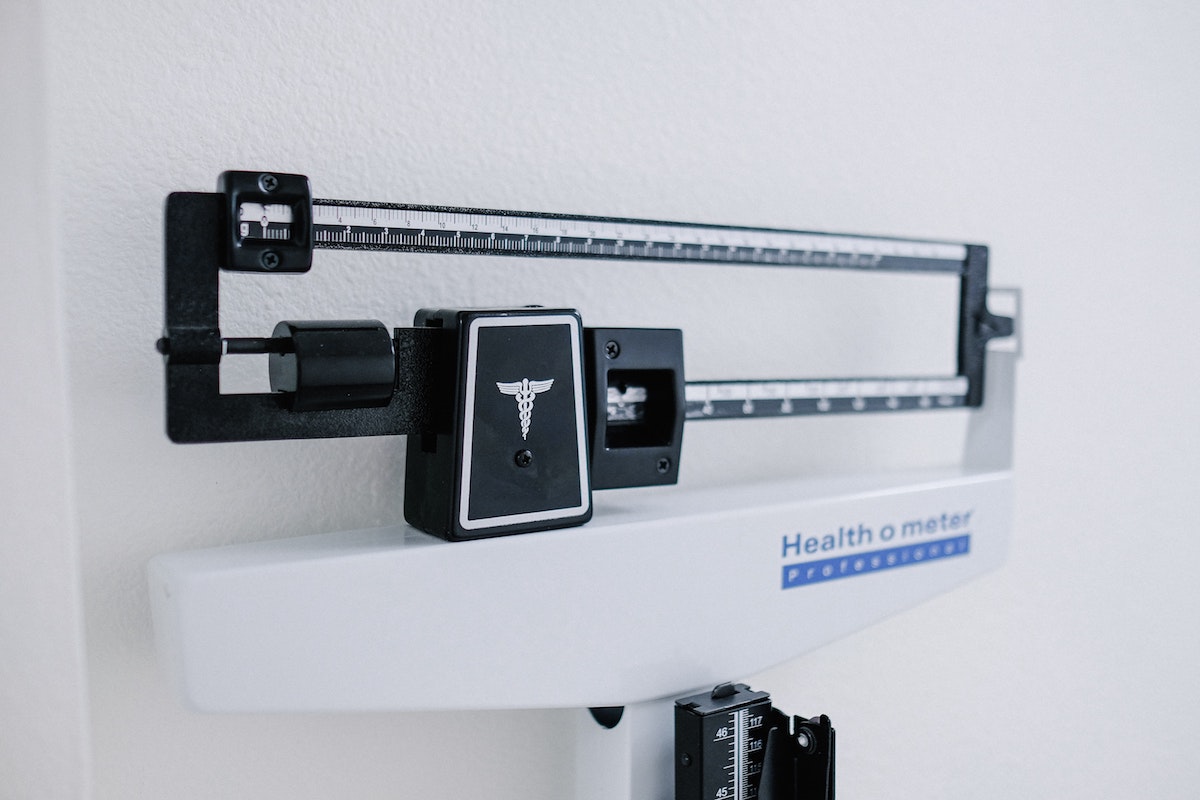“How much weight can you lose in a week?” is a question that plagues the minds of numerous people. Like many others who want to know how much weight they can lose in one week, you probably have an imminent event and an outfit that you want to fit into comfortably on that day.
To help you achieve your goal, we’ve weighed all the factors that affect weight loss. Here’s what we discovered.
What is the maximum weight you can lose in a week?

If you were over-exercising and barely eating any food to create a severe calorie deficit, you could lose five to 10 pounds in a week.
However, much of this weight loss would come from water weight, glycogen depletion, and even possibly muscle mass rather than fat. Additionally, rapid weight loss is unsustainable and unhealthy and can lead to health complications, including a slowed metabolism and nutritional deficiencies.
What is a healthy weight loss goal?

Per the Centers for Disease Control, a healthy, sustainable weight loss goal is one to two pounds per week. You can achieve this goal by incorporating a slight calorie deficit and regular physical activity, including resistance and cardiovascular exercise.
At this steady pace, losing weight will likely be a result of fat loss rather than muscle or water loss. This, in turn, will make your weight loss attempts successful in the long term and also minimize negative effects like nutritional deficiencies and muscle loss.
What are the consequences of unhealthy weight loss methods?

Slowed metabolism
When you deprive yourself of food, your body tries to conserve energy so that it can keep you alive. This lowers your resting metabolic rate. In simpler terms, it triggers your metabolism to slow down as your body tries to maintain whatever it has left toward vital functions like breathing and digestion.
Over time, this makes it harder to lose weight or maintain weight loss, even when you return to a normal calorie intake.
More likely to gain weight back
Rapid weight loss not only leads to slower metabolism but could also cause muscle loss. Muscle mass is crucial because it helps maintain a higher metabolism. When you lose muscle, your resting metabolic rate also decreases, making it easier to regain the weight you had previously lost.
Nutrient deficiencies
Unhealthy weight loss methods, like extreme calorie restriction and some fad diets, often lead to insufficient intake of essential nutrients, including protein, vitamins, and minerals. Inadequate protein intake would make it more difficult to maintain muscle mass, which is crucial for sustainable weight loss.
Also, inadequate iron, calcium, and vitamin D intake can weaken the bones, muscles, and overall immune function. Nutrient deficiencies can lead to fatigue, anemia, lower immunity, and, in severe cases, long-term health complications like osteoporosis or heart problems.
Mental and emotional strain
Weight loss not only takes a physical but also a mental toll, even when done correctly. Calorie restriction of any kind requires discipline and mental fortitude. As such, more severe calorie restrictions could exacerbate into mental, emotional, and hormonal problems like stress and anxiety.
The mental strain associated with severe, unhealthy weight loss methods can trigger mood swings, irritability, and depression. Over time, these mental issues can evolve into eating disorders like bulimia or anorexia.
How do you know if you are losing fat when the scale goes down?

The scale is not the only indicator of fat loss, as many factors affect weight loss and weight gain.
Water retention and loss could cause dramatic increases and decreases in weight. Factors like high or low sodium intake, hormonal shifts, and even alcohol consumption can cause your body to hold or shed water. Also, a rapid drop in carbohydrate consumption would cause you to lose water weight.
Muscle loss can cause you to lose weight quickly. When you get into a severe calorie deficit and are not eating enough protein, you will lose muscle, and this will show on the scale. Additionally, a drop in weight is sometimes the result of bowel movements. Your digestive system clearing out will cause you to lose some weight. This is not an indicator of fat loss.
To better gauge fat loss, you want to use other factors, like measuring the areas where you had the most fat. This could be your waist and hips. It would also help to note how your clothes fit, as fat takes more space in your body than muscle does.
Other reliable signs of fat loss are increased energy, better sleep, and an improved metabolism. These things happen when you eat less and move more. Away from the scale, they are signs that your efforts are paying off.
Remember that you can’t completely write off the scale. Typically, fat loss will result in weight loss, but not as quickly as many imagine. A consistent and gradual weight loss over some weeks is a sign that you are losing fat.
Tips for a healthy weight loss journey

- Set realistic weight loss goals: One to two pounds per week is a great place to start.
- Follow a balanced diet: Eat proteins, fruits, vegetables, whole grains, and healthy fats.
- Incorporate regular physical activity: Do both strength training and cardio every week. Strength training helps build and preserve muscle mass, which helps increase the calories you burn at rest. Cardio, on the other hand, helps burn extra calories to make fat loss easier.
- Drink enough water: Drinking a lot of water can help with weight loss by improving digestion and reducing water retention. Sometimes, people mistake thirst for hunger, leading to overeating.
- Monitor your progress: Track factors like your weight, body fat percentage, and how your clothes fit. The scale is not always reliable, as multiple factors affect weight loss, so using these other metrics helps you see the bigger picture.
- Be patient and consistent: Weight loss can be difficult and long. Focus on making small, manageable changes to your lifestyle that you can maintain over time. Consistency is key to achieving lasting results.
Frequently asked questions

Can I lose 5 pounds in a week?
While it is possible to lose five pounds in a week, much of that will likely be water weight, not fat. Also, losing that much weight in one week is not a sustainable or healthy goal for long-term weight loss.
Is losing 3 pounds a week healthy?
Three pounds a week could work for some people, depending on their experience with weight loss, their diet, and how much muscle mass they have. However, health experts suggest that the average person’s healthy weight loss range is one to two pounds a week.
Do weight loss rates differ between men and women?
Men often lose weight faster than women due to differences in muscle mass and metabolism. Men typically have more muscle, which helps them burn calories at a higher rate than women.




